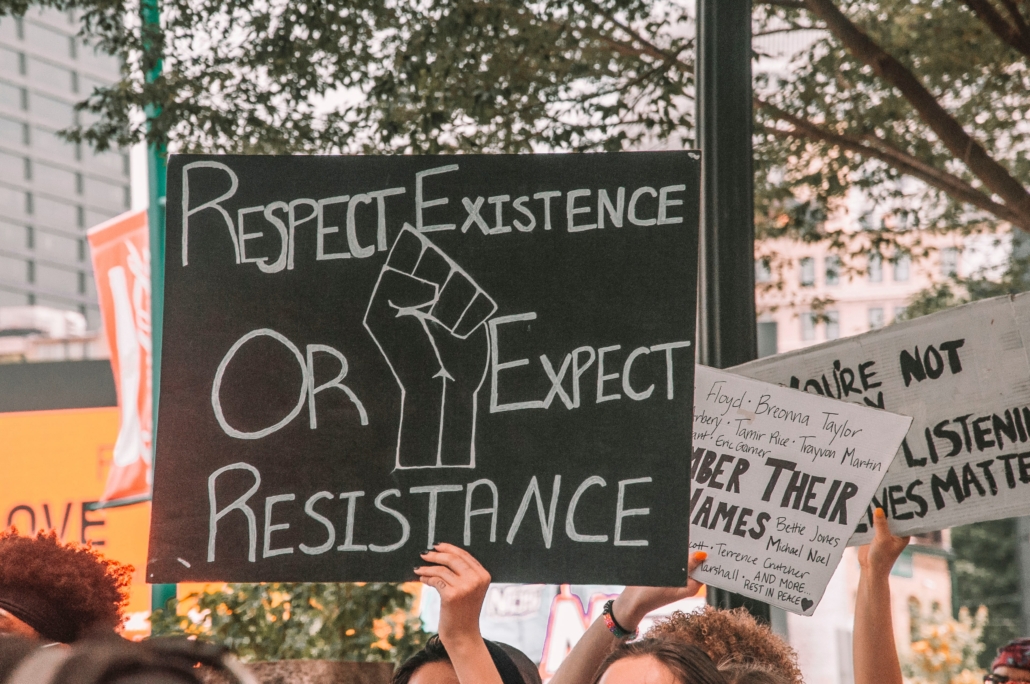Navigating Polarization and Activism in the Workplace

A couple days before the World Cup in Qatar was set to kick off, FIFA, soccer’s governing body, announced a ban on beer. Reuters called the move a “last minute reversal which raised questions among some supporters about the host country’s ability to deliver on promises to fans.” Many if not most of the attendees were looking forward to drinking alcohol while enjoying the game—a practice that’s common across the world wherever soccer (or football, as most people refer to the sport) is played. But in Qatar, drinking alcohol in public or being found drunk is illegal and can attract heavy fines and even jail terms. It’s just one example of a culture clash that underscores the problems of managing competing values on material issues in a diversifying world.
In recent years, companies have not only had to face material issues relevant to their business, but have ventured into fraught political issues unrelated to their business activities by choice. They did so chasing individual preferences of leadership, clout, or engagement, often without seeing the full consequences. While a public stance on the legality of alcohol seems ridiculous, companies nonetheless wade voluntarily into taking positions on other political issues.
Not much more beyond humility is needed to accept differences of opinion and lifestyle.
In the face of increasing political polarization and activism, as well as globalization that brings increasingly diverse cultures under one company banner, companies are feeling lost in how to move forward. Ethical Systems recently conducted a study in which we interviewed business leaders in various industries to learn about their challenges and solutions regarding polarization and activism. Our forthcoming report on political polarization will summarize these interviews and explore the problem in depth. For now, let’s focus on political polarization among employees and a re-examination of the employee-employer relationship.
Choosing employees over issues
We have seen indications that employees are now considered the most important group to the long term success of companies. Yet political polarization threatens efforts to retain and satisfy them. A renewed focus on employees, investing in and empowering them to be their true and unique selves, may be a successful strategy. This includes selective concessions to the increasing needs and demands of employees, as well as systems to manage the attendant risks of polarization and activism.
Activism at the company level can often run against what many individuals value, and the smaller a minority someone belongs to (e.g. workers 65 years old and over, or ones holding atypical political views) the more likely they are the ones feeling left out. Those with ideas that don’t agree with the majority at work may exhaust their personal resources with a “façade of conformity.” A healthier alternative for these employees might be found in open discussions of political ideas within the company. Workplace political discussions can be some of the most productive and promote tolerance, due to the large number and diversity of opinions compared to similar discussions among friends and family.
An open-minded and inclusive workplace may even attract more people who are accepting of others, and fewer who will protest or demand that the company advocate for their opinion or impose it on others. It is also likely that person-environment fit will be supported without becoming excessive, by mutual acceptance of diverse views without the homogeneity that tends to lead to conformity and groupthink. A company prepared to handle political disagreement may even be more successful in a merger or acquisition.
Instead of supporting issues through external activism (e.g. public statements, tangible support for causes), organizations can support employees toward pursuing their own opinions and interest in this arena. If, for example, 80 percent of employees support an important social cause, they could be empowered to support the cause with their own unique voice and perspective, and specific to the solution or approach they prefer, rather than as a block. And the 20 percent who disagree, or don’t have a stance, do not have to see the organization they belong to taking a position against their own. This is an underappreciated form of activism: By being more accepting of employees and their differences, companies can allow employees to flourish.
Not much more beyond humility is needed to accept differences of opinion and lifestyle. The greatest benefit is greater self-determination for employees who may hold unpopular political opinions or live a lifestyle that is not yet widely accepted. This humility and respect for individuals means that the organization must go without the social praise it might otherwise seek by taking popular public positions. In exchange, employees must also avoid the temptation of pressuring their organization to agree with or amplify their position with its greater voice and reach.
Organizations can avoid unnecessary external activism, but still must manage more material issues. In these areas such as diversity, supply chains, and environmental impacts from their activities, values-based decisions must be made. Individual empowerment is an adjunct to and not a replacement for these decisions. In the area of diversity, for example, whether to seek greater representation of certain groups, and how, are decisions the organization must make and individual empowerment could aid in success with either approach.
Existing approaches to diversity efforts reflect the values of organizations, but have not been very successful. Most focus on identity groups, don’t improve diversity, and create resentment. One reason is that attempts to force changes, such as reducing biases, rarely work. Strategies such as contact with diverse people and mentoring are more effective. Both majority and minority groups often feel that these approaches do not address their personal needs because group- and identity-based interventions make the error of assuming members of groups have homogeneous challenges and desires. Because intersectional diversity can result in nearly infinite categories of identity, too many for each to be the target of diversity efforts, such approaches are blunt and not fully inclusive. Individual empowerment can be a very helpful supplement and safety net in these areas for those in too small of a minority to have received attention from larger efforts, or those who view the issues differently, as well as a buffer against any systemic and structural problems that diversity training does not resolve.
Companies will probably be on surer footing confronting mostly material issues in the workplace. Take the reaction to the overturning of Roe v. Wade. Companies had to decide if their health coverage would extend to cover abortion and related costs. They did not, however, need to publicly take a side on the issue. Doing so is choosing to step into the intractable debate of rights and morality that will inevitably work against the beliefs of many individual employees. They can support employees instead by letting them know that their position on the issues will not affect their suitability for employment and advancement.
For employees, feeling politically alone in one’s workplace may lead to decreased job satisfaction and organizational commitment, discrimination, and less identification with their profession. Employees are also increasingly expecting and pressuring their employer to actively align with their own personal values, and may shy away from employers with political “misfit” to their own values. A 2022 study found that “organizations’ affiliations with political parties or their stances on political issues can influence the amount and types of potential employees that organizations attract.”. Then, candidates can face biases in the hiring process based on politics, denying prospective employees a fair opportunity and organizations the best talent.
In a 2020 paper, Kristen Swigart and her colleagues note that “there have been calls to move away from the focus on demographic or surface-level diversity (i.e., gender, race) to more deep-level characteristics (i.e., values, personal identities) that cannot be immediately discerned.” While deeper diversity has risks such as increased conflict and reduced cohesion, there are also potential benefits to decision making and other business outcomes. Since viewpoint (specifically political) diversity may be an asset to companies, this shift could not only support deep and meaningful employee diversity but also bolster the success of the company. A deeper approach to diversity that is rooted in individual differences may be an effective way to be welcoming toward everyone, while also increasing diversity in a way that is meaningful and functional.
There will always be trolls in the cafeteria, a risk from different views in the workplace, but these can be managed with clear policies, modeling from leadership, and appropriate interventions when employees cross lines. There should be serious consequences for incivility, for instance, given the negative impact on well-being and physical health that political identity-based hostility may have. Sensible limitations can still be in place, such as prohibition of obscene, violent, or hateful content in conversations and on clothing at work. Employee development and an ethical culture can support tolerance of reasonable disagreement and discomfort.
Empowering employees means not just giving them permission to act, but also giving them the resources and tools they need to succeed. In the context of political polarization, this means things like resources on how to hone critical thinking skills and understanding multiple viewpoints. While this may not seem like the responsibility of one’s employer (and it isn’t), aiding in such fundamental skills is still in the best interest of the organization and employees. For employees who increasingly admit they have difficulty “adulting” (a very real threat to success and well-being), there is broad awareness of, but little remedy available for, some basic life skills. Providing such training may be appreciated by employees and contribute to their work/life balance.
Employee skill development
Organizations can support critical thinking by providing training in core skills like assessing the quality of sources and information, understanding opposing viewpoints, mindfulness, and psychological flexibility. For example, improved critical thinking could help keep fake news from gaining traction in your organization. In Finland, the education system began to focus on critical thinking back in 2014 (in part due to Russian misinformation) in their education system, and there is emerging evidence for efficacy such as a study that found Finnish students before and after baccalaureate education outperformed American students from Stanford on a test of media literacy (e.g. recognizing fake news).
Employees who are empowered and capable regarding political discourse may also avoid falling for conspiracy theories. Conspiracy theories appeal most to those feeling powerless, and conversely more empowered people may be more resistant to them.
An organization can also be active without being activist. Examples include granting schedule flexibility for political activities (voting, volunteering, protesting), hosting debates on important topics, and enforcing policies about discrimination and bullying in the workplace. In addition, they can build systems that promote ethical culture and procedures, from recruitment to advancement.
No solution is fit for every organization, so consider if these suggestions make sense for your company and its values. It is ultimately up to an organization where it wants to be activist or take risks. From seeking an “exit strategy” to disengage from political activism, to becoming even more activist but with greater efficacy, an organization should purposefully choose and clarify its activism typology for their own self consistency and progress. Look out for more on these typologies in our upcoming in-depth report on political polarization in the workplace.
Brian Harward is a research scientist at Ethical Systems.









